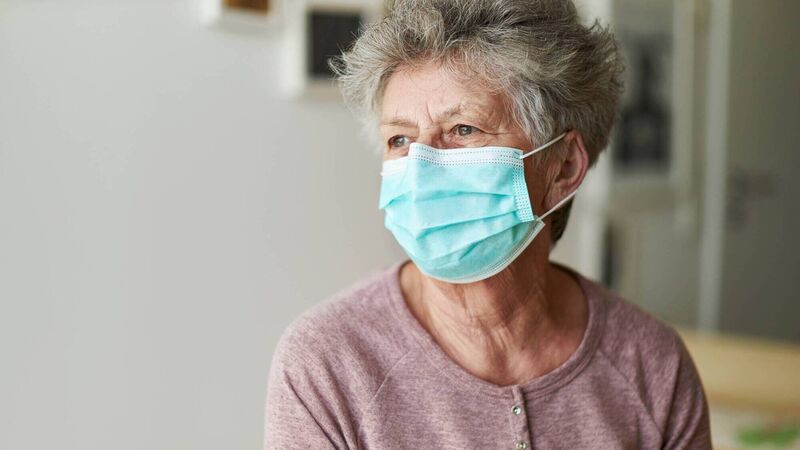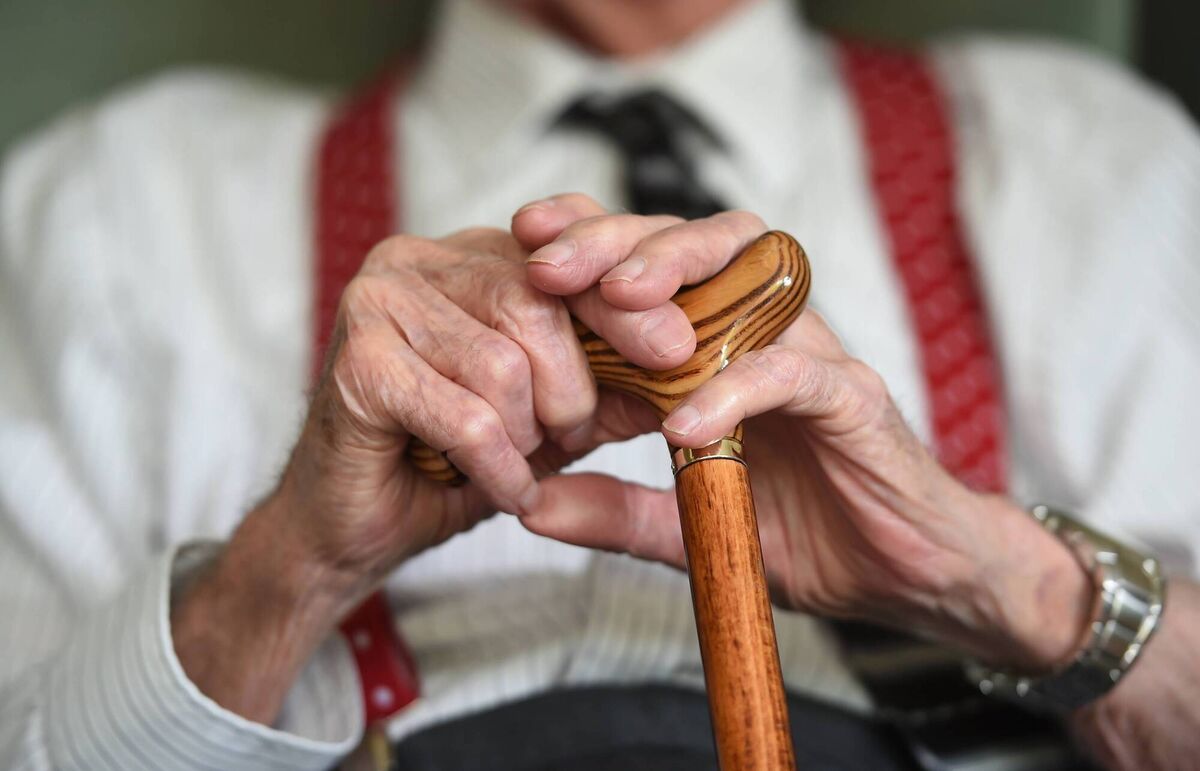Fergus Finlay: Time to consider protecting the elderly the way they protected you

Elderly living can be comfortable and liberating. However, for some, the arrival of Covid-19 has brought a dread of interacting with the outside world.
You've a long way to go before you need to worry about the ageing process, that thing that happens when you’re as old as your grandad. But it’s out there ahead of you nevertheless. I hope you get there in your time, and I hope that by the time you do you have a lot to look back on — and a good bit to look forward to as well.
But the other thing I hope you know is that the thing that matters most to the generation that went before you — my generation — is you. You’re our children and grandchildren, and for most of us, you’re the single most important thing in our lives. And I’ll explain what I mean by that in a minute.
Now, there’s a lot of good stuff about getting older. You’re a bit wiser and at the same time a bit more free (you get to say what’s on your mind a bit more, without worrying too much about repercussions). With any luck at all, you won’t have the debt you used to have. You might own your own gaff, or be renting at a rate you can afford. Your needs are simpler.
But there’s other stuff too, maybe not so good. A great pal of mine, who’s had more than his fair share of ups and downs, always says that old age isn’t for the faint-hearted. And I know what he means.
I’m certainly not admitting to being old — maybe when I’m 95 I’ll get around to that. But I have to admit that I don’t spring out of bed in the morning with the same ease as I used to. In fact, if you want to know the truth, my getting up in the morning involves a lot of self-assembly. There are glasses to be found, dentures to be glued in, and hearing aids to be installed.
Good coffee — and thank heavens that’s still plentiful — completes the process, and helps the easing out of bones and muscles that are inclined to groan and protest a bit more than they used to.
But despite all the moaning and groaning, I love getting up in the morning. I love having things to think about and work to do and news to catch up on. I even like reading the emails that tend to pile up pretty quickly, and I enjoy catching up on my social media — even the ones that drive me up the walls.
I’m lucky. But the funny thing is, I’m still in the class of people they call vulnerable. That’s because of my age and a couple of health issues from the relatively recent past. Oh, and I’m carrying a pound or two more than I should.
I hate being described as vulnerable — and I don’t feel it. But I do know if I get Covid-19 I won’t necessarily breeze through it. So I take it really seriously.
But I also know a lot of people my own age, and maybe older, who live in mortal fear of the disease. They know if it comes their way there is every chance they simply won’t survive it.

It’s a terrifying position to be in — and that fear affects thousands of my generation. People who are ill and a bit frail. People who have had health challenges that they haven’t gotten over. People who don’t live in comfortable surroundings — I know elderly people who have to cope with damp where they live, and whose homes are never quite warm enough.
Some are dreading the winter because they dread every winter — the draughts, the rain, the coughs and sneezes that can get much worse very quickly. They live in fear, in too many cases, that this winter could be their last one.
The coronavirus only makes that worse. The real fear now is if they get sick, they’ll be even more alone. Nothing could be more terrifying than the thought of struggling for breath, with no-one to hold your hand and help you get through the pain and the fear.
But if I’m being honest, do you know the thing that my generation of older people is most afraid of right now?
It’s you.
Yes. I’m afraid so. I hate to have to say it, but most people of my generation have lived through lifetimes when it was their children and grandchildren, not themselves, who were most vulnerable to disease. In our time and in our country, we’ve lived through epidemics of tuberculosis, measles, polio — diseases that wreaked havoc among generations of children and young people.
All those things were major political issues in our time. The fight against tuberculosis in Ireland – I was alive then, although I was only a small child - preoccupied politics for years and led to history being created. That generation was absolutely determined to beat it — and they did — because of the damage it was doing to the children.
Later, one of our own children nearly died from bacterial meningitis, because there was an outbreak in our locality. We will never forget the terror of that.
These are only some of the experiences that make our generation know in our heart of hearts that we’d do anything to prevent one of our children or grandchildren getting any of those conditions, or this current one. That’s why many of us aren’t seeing our grandkids now — and it’s the most painful bit of the isolation coronavirus causes.
This is the first pandemic in history when parents were at greater risk than their children. If it was the other way around, there is no precaution parents wouldn’t take for the sake of their kids.
So why does it seem so difficult for young people to follow the simple rules that keep everyone safe? The hand-washing, the distancing, the masking. Nobody wants to bring coronavirus home to their parents or grandparents, but far too many young people seem to behave as if they’re both invulnerable and incapable of transmitting the disease.
Neither of those things is true. Not only can young people get it, they can really suffer from it — in some cases for months. And everyone, no matter what age, can give this killer disease to an older relative. In the wink of an eye.
And yet all the time we see behaviour that convinces us that the next generation has decided we are expendable. That we don’t matter. In my locality, and yours’ too I’m guessing, it’s a daily occurrence to see small gangs of young people – teenagers and young adults - hanging around without a care in the world, following none of the guidelines that offer protection.
If any of you, the next generation, gets it, there’s every possibility you’ll have to write off a year of your life. You should recover. But if you bring it home, there’s a chance you’ll be writing off somebody else’s entire life. And that somebody else could well be someone you’ll miss forever.






